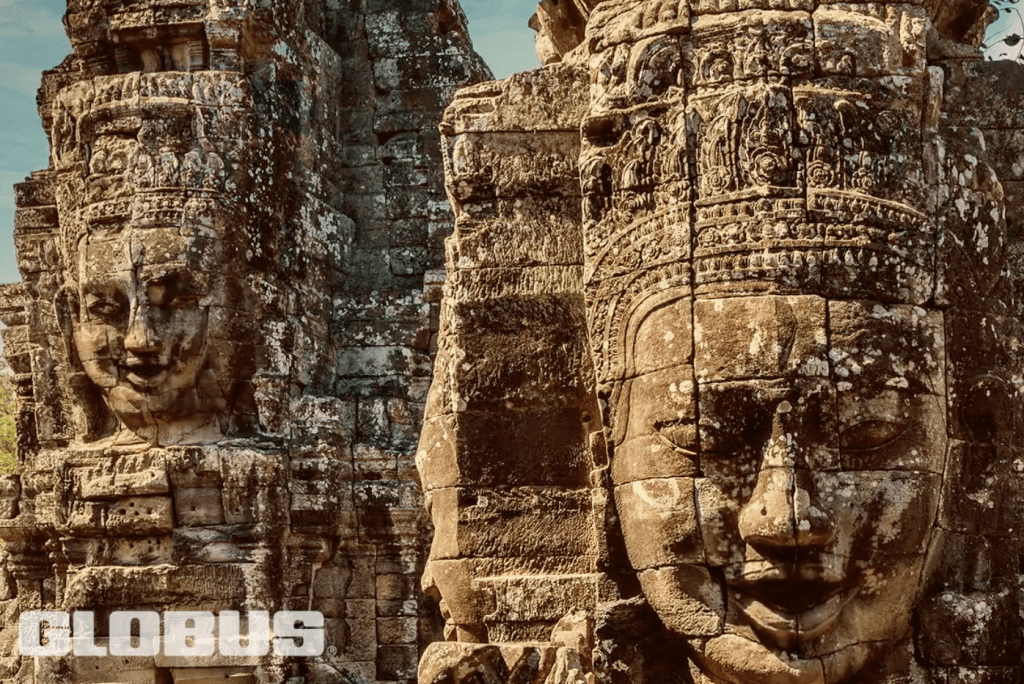Skift Take
A powerful, succinct message coupled with humor can go a long way in drumming up more interest in a product — and drive people to buy when there's already a high demand.
Tour operators have taken numerous steps to make their guests safe since resuming trips. But how have they been working to get travelers back on their trips in the first place?
One company has decided to use humor and a hit song from the 1970s to tell travelers how much popular destinations have missed them. The Globus family of brands — the parent company of four tour operators — launched its Plan Your Comeback campaign this May featuring a video of numerous landmarks singing Player’s 1977 hit Baby Come Back.
So are travelers indeed coming back to Globus? The numbers definitely say so. Bookings for 2022 travel across all of the company’s brands are up over 35 percent compared to the same period in 2019, according to Chief Marketing Officer Steve Born. That’s not the only figure that indicates Plan Your Comeback’s popularity: the campaign has attracted an extra 1.5 million visitors to the company’s websites.
Why has it been successful? Born opines that comeback theme resonates in the United States. “Americans are great at comebacks,” he said.
Born believed it was inevitable that Globus would make a comeback due to increasing consumer demand and confidence he saw through the first quarter of 2021. So much so that the company’s marketing team and agency Xuma started developing the campaign in January to celebrate its return to organizing international tours. Globus unveiled Plan Your Comeback in May to coincide with the reopening of numerous destinations.
But “the creative twist in the concept was that the destinations themselves missed us, so it’s time to reunite,” Born said. Hence, the campaign features landmarks including Michaelangelo’s David, the Eiffel Tower, and the Easter Island statues serenading travelers to Baby Come Back.
How did Globus determine which landmarks to feature in its campaign? Born answered that the ones appearing in the video are largely cherished by U.S. travelers but were out of reach when global tourism was paused. “This campaign was focused on the American traveler perspective,” he said.
But Globus hasn’t neglected other major markets as the comeback campaign has been tailored to appeal to travelers in Canada and the United Kingdom. “The comeback idea works well as borders open in various markets,” Born said, adding the company had been promoting North America to the UK market as the primary destination due for a comeback. “That flexibility was by design.”
Flexibility has been a key aspect of the campaign, which actually is composed of two phases — the first ran from May 17 through July while the second began on September 7 and runs through October. So what’s the difference between the two phases? Born said the second iteration features a more direct call to action, including a price lead in.
“The biggest part of the evolution was moving from a general ‘plan your comeback’ message to a more active ‘time to plan,'” he said.
The video for the second iteration of the campaign also featured new destinations and icons, including a cameo by “some of Switzerland’s most well-known citizens,”’ Born said.
Whom exactly was he referring to? Cows in the Swiss Alps. While the sight of the creatures popularly associated with Switzerland singing will surely bring a laugh to people watching the video, getting to the point where they could belt out Baby Come Back took a lot of work. Born said to secure the usage rights for Player’s hit, Globus had to negotiate with the band, songwriters, and rights owner, Sony, to be granted permission to feature the song in the campaign.
The Plan Your Comeback campaign does include more than landmarks singing. The company sent out emails featuring icons such as the Mona Lisa writing love letters to guests telling them that they have been missed. “The City of Love hasn’t been the same with you,” the woman in the famous painting said. “Plan your comeback to Paris.”
Singing landmarks and inanimate objects writing love letters should certainly catch people’s attention as well as elicit a chuckle. For Born, they’ve represented a sense of joy mostly absent since the start of the pandemic.
“Travel is fun — a genuine source of happiness both in planning and doing,” he said. “From what all of us had been through over the past year and a half, we’ve been deprived of that fun and happiness. This campaign was a reminder both to us and our travelers that we can rejoice in that return.”
The Daily Newsletter
Our daily coverage of the global travel industry. Written by editors and analysts from across Skift’s brands.
Have a confidential tip for Skift? Get in touch
Tags: advertising, marketing, music, tour operators
Photo credit: Montmartre - one of the sights that missed American visitors in France. Globus
